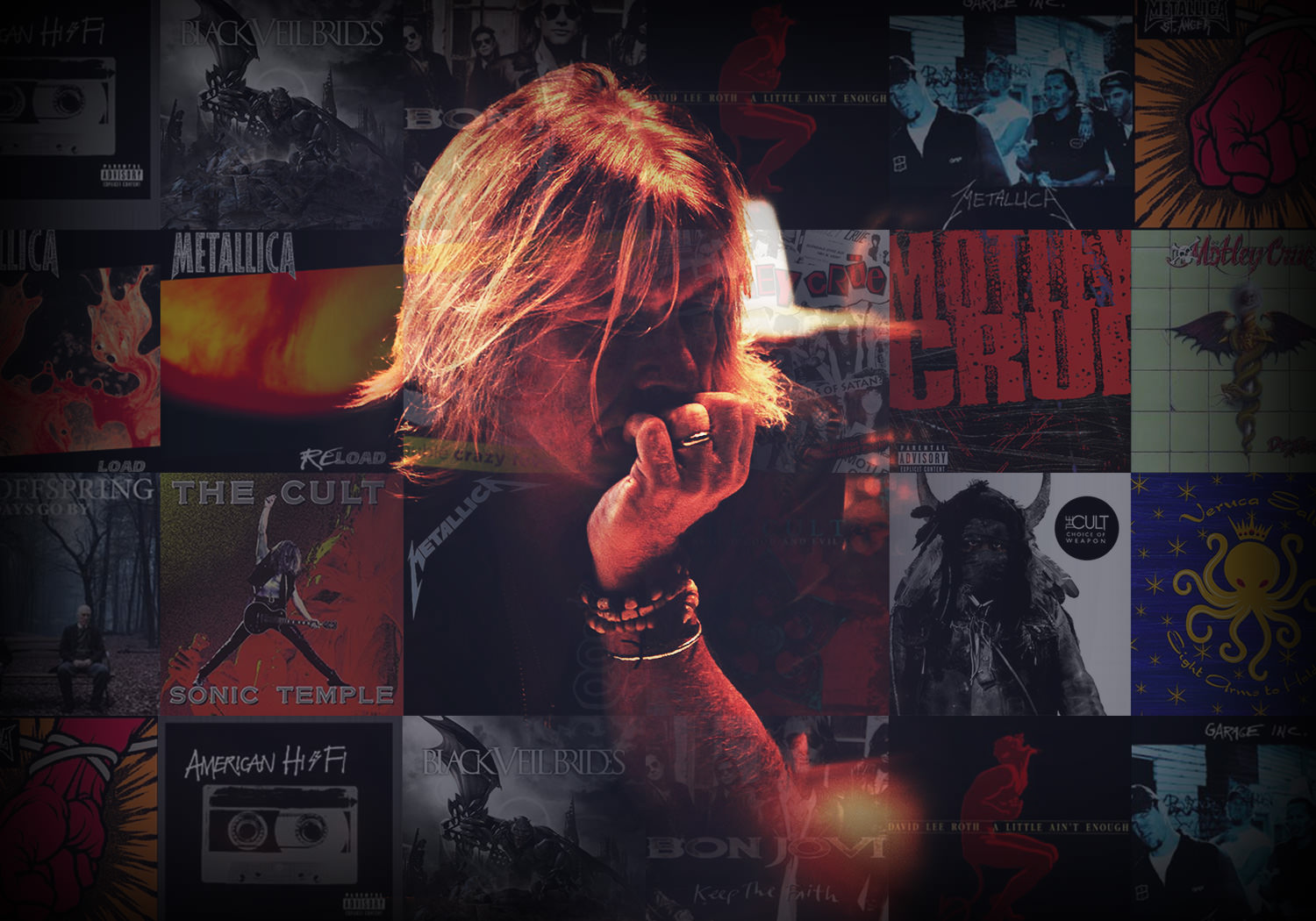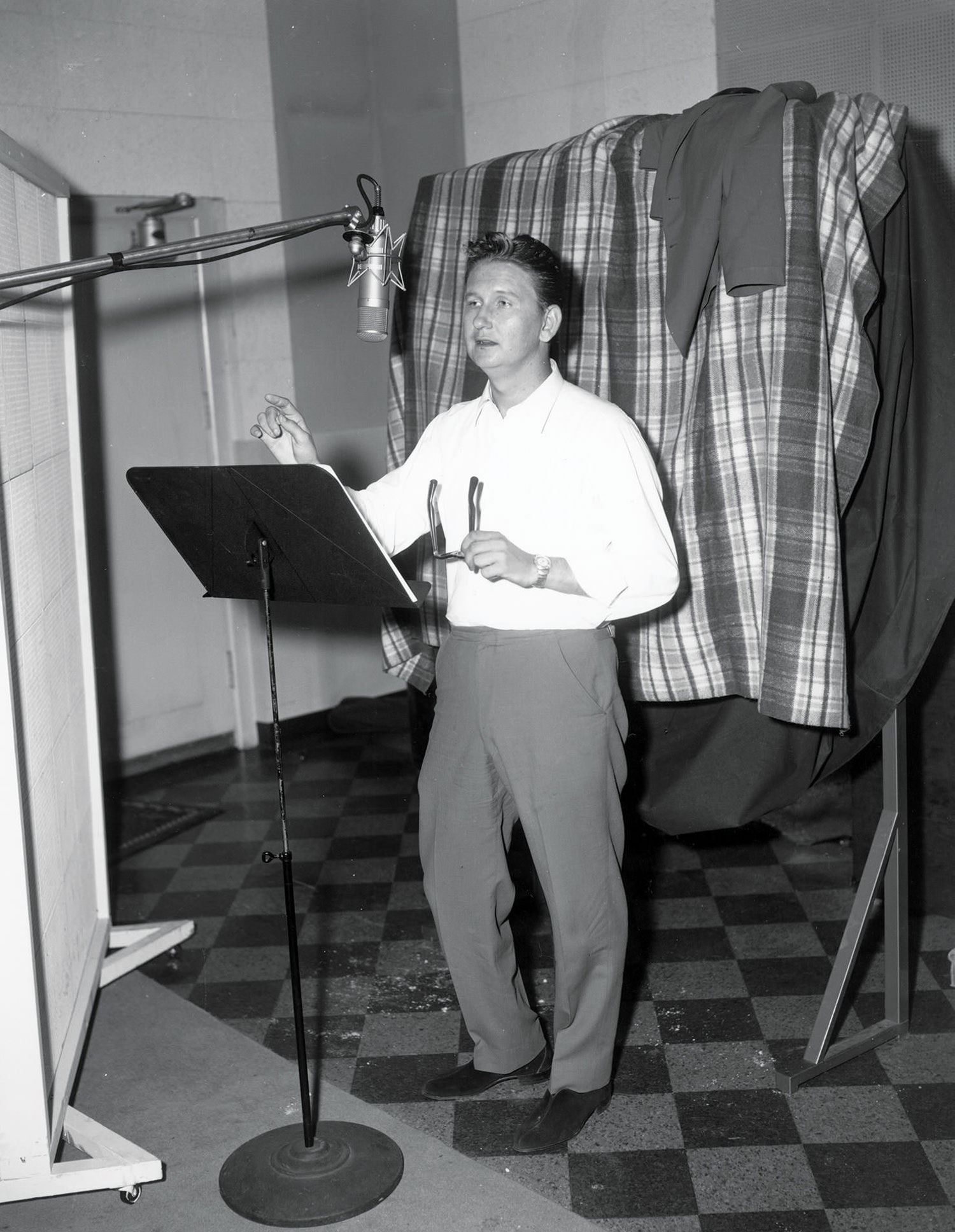How many people work for iZotope?
Jeremy Todd: We're at about 25 to 30 people, depending on how you count something like that. We work with a lot of people on a part-time and full-time basis.
Jack Kote: I'm half a person!
Where are you based out of?
JT: We're in Cambridge, Massachusetts — just north of Boston.
How long has iZotope been around?
JT: Since 2001.
Who started it?
JT: Me and Mark Ethier. There was a big group of us that started it out of our dorm rooms at MIT when we were seniors.
That's great! What was the initial emphasis and what was the first product?
JT: We were all interested in audio; we're all musicians. A lot of us had experience interning at various companies in the music industry. I studied audio DSP [digital signal processing]. I think it took us a few years to find a really solid course, but the very first thing we did was Vinyl, which is still on the market. That was an example of things we'd been studying. We wanted to put it out there and make it free. That was a great way to get started, because we were completely unknown. It built up goodwill, as well as a brand for us.
What is Vinyl?
JT: Vinyl is a plug-in available for PC and Mac (as well as all major plug-in formats). It does vintage vinyl simulation. It will take audio and make it sound like pulled from vinyl. It's by far our number one, as far as people using it, because it's free. [laughter] It's a lot of fun.
It's a loss leader that gets the name out.
JT: Yeah, exactly. So, we did Vinyl and then started working on Ozone, our mastering product. Vinyl had built up a pretty significant database of users — you have to give us your email address [to use Vinyl for free]. Then we were able to tell everyone about Ozone. Vinyl was one of the best free plug-ins most people had worked with, so they were willing to try Ozone; that kick-started our company.
Victoria Kane: That kind of pricing model is indicative of iZotope. All of our other plug-ins are very reasonably priced and affordable to the user. We also offer a 50% discount to students on all of our software.
JT: We saw pretty expensive equipment on the market at that time, so we tried to make something a bit more accessible and we've held true to that over the years.
So what year did Ozone come out?
JT: I think December of 2001.
That was something that would be for all-in-one mastering?
JT: That was one of the first plug-ins to pull in what had previously been done by using separate chains of plug-ins. There were some significant workflow advantages to doing that. We've since released several plug-ins that have a similar idea behind them; an all-in-one solution instead of several different components.
Right, that makes sense. When did the RX series come out?
JT: 2007, with the RX 1. That was our first restoration product, which had some really exciting features and was also the first [standalone] application we'd made.
For the first time, customers didn't have to be in a DAW. But, at the same time, RX provided plug-ins that were compatible with every DAW on the market. Users who wanted to stay in their DAW could still access the RX suite. We didn't want to force a workflow on the user.
I couldn't believe that someone could bring restoration software to market that did a great job and was affordable.
JT: For something like de-noising, if you're looking at cleanup and audio recording, I feel like these technologies don't need to be that expensive. We saw a price point that was fair and competitive. We looked at what other companies have, but on the whole we have an incredible Denoiser in RX and we'd love to have it compared to other brands. The comparison is it was usually very favorable towards us.
VK: Yeah, we like to think of RX 2 Standard not as a light version, because it really is a complete toolkit for everything you need. RX 2 Advanced has more technology, in terms of specific use cases.
I do a lot of archiving work and I'm able to get a massive amount done with RX 2.
JT: That's the big thing; it's like Ozone. It's all in one. You shouldn't be running into problems where RX can't handle it and there's another tool on the market that's amazing for it.
Yeah, I like the Declick.
JT: Yeah, that's a new thing in RX 2.
I actually had a need for it immediately. It worked.
JT: That was one of the huge requests we got for RX 1, to de-crackle, so we put a lot of time into that in between RX 1 and RX 2. JK: It's actually been really nice too because, with things like Decrackle and Declip, the algorithms have almost gotten to the point where you can use them on so many different things. We do an example in the demo of removing lip-smacking noise from a vocal take. It's really incredible how they move beyond restoration. It's not just restoring tape masters; it's literally an incredible toolkit to do anything.
JT: I feel like people still see restoration tools as, "Well, I don't work with vinyl or tape" but any time you work with audio, something's going to go wrong or something could be improved. RX2 is really targeting that.
I use it quite a bit in tracking for guitar amp buzz and little background sounds you don't quite want. With Spectral Repair I'll go in and fix things. For example, if you mic an upright piano from the front, you get weird little noises. I'll go fix those.
JT: We call that repair. JK: Use your Lasso and Magic Wand tools to select that stuff out.
From the first time I used RX I felt like I could get results easier than I expected.
VK: That's what we like to hear!
JT: The workflow is really important to us. We've got the DSP under the hood, but we spent a huge amount of our development cycle on how to make it easier and faster to use.
So, Nectar is the new thing?
JK: It's an all-in-one vocal toolkit, so it's similar in philosophy to all of our other stuff. Like RX is supposed to be for restoration and repair, creative use and whatnot, Nectar tackles vocal processing. It's got some great stuff. It's got pitch correction: automatic and manual. It's got breath control, where you can automatically suppress breaths detected when they come in, a de-sser, as well as compressors, saturators, limiters, delays and reverbs.
De-essing is a really big issue for a lot of the work I do. How did you approach that?
JT: We looked around and tried to figure out what people used. What did people like and not like about it? We found that the dbx 902 de-esser is very highly regarded, even though it's an older piece of gear. We got one in order to attempt to understand it and to see how it works. Why do people like it? We were able to extract a lot of those characteristics and put into the de-esser.
JK: The actual de-esser in Nectar can be used on pretty much anything, but the focus was originally on vocals. If you have a quiet verse and then a really loud chorus, our de-esser will apply the same amount of s reduction, regardless of the level. Because of that, it's just incredibly natural. I almost never hear it, even when I know it's working.
What do you see in the future? How do you see the company and its growth?
JT: We're definitely excited to work on RX 3, which we're already talking about, but there are still a few classes of plug-in that we're also looking forward to. I see that continuing. At the same time, the licensing side of our company is growing even faster than the music application side. We're taking a lot of the technologies that we developed for musicians and offering them to other industries. A good example is video games. The latest version of Rock Band has pitch correction when you're singing, and that's our pitch correction. We had a lot of fun doing that. We're now working with a bunch of video game companies to take the technology for musicians and make those concepts familiar to people in this industry and get them working inside video games, which is really neat.
I never even thought about stuff like that!
JK: I don't know that we did either, until two years ago. JT: The truth is that people who work on video games have been using our tools for sound design; Spectron especially. You can get more creative with our products. The Xbox 360 and the PlayStation PS3, their video systems are powerful enough that a lot of things we run in the studio, they can run in the game itself. That opens up a lot of possibilities, such as having the effects change as you walk around. I think we're trying to be the defining company that helps video game developers move in that direction.
VK: It's important to note that in an economy like this, we're expanding as a company. We're hiring new people, we're expanding into new markets and we're constantly looking for new players to have on our team to allow us to do those extra projects that we want to do and are capable of doing. We're at the point where we have tons of great products.
With the pro audio side, are a lot of your sales direct?
VK: We sell our products directly from our website and we also have a dealer network that we work with internationally and locally.
JK: When iZotope was smaller, we kind of had to ride on the backs of giants. We were distributed through M-Audio.
JT: Before that, we were 100% direct. And then we worked with M-Audio and that was great for us. We eventually took distribution on our own. I think, honestly, we'd be happy to see distribution take off for us. In theory, that could be better. We've only been doing our own distribution for about a year or so now. But I definitely see the ratio changing. I think one important thing is that our customers tend to be passionate. They tend to fall in love with our products.
VK: Our technology just works. And when it works, you don't have to spend time convincing people that it does. We have an army of satisfied customers that do it for us.
JT: Dealers help do that for us in places where we're not known as well. We're trying to create close dealer relationships for that reason.
Do you get a lot of customer feedback on things?
JT: Yeah. A lot of things that go into our products come from customer feedback. They let us know what they hate and what they love and then we incorporate it.
JK: It's great when people actually take the time to email. Nowadays there are too many huge conglomerate companies where people feel like they can't communicate. That's not the way it is with us. If you're going to pay money for something, you want to be able to communicate with the company.
VK: We take support questions very seriously. We'll email the customer back, ask for a copy of their session and have our tech guys look at it.
Wow, that's pretty cool!
VK: We get it to work and that's indicative of the company in general.




